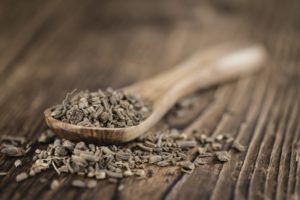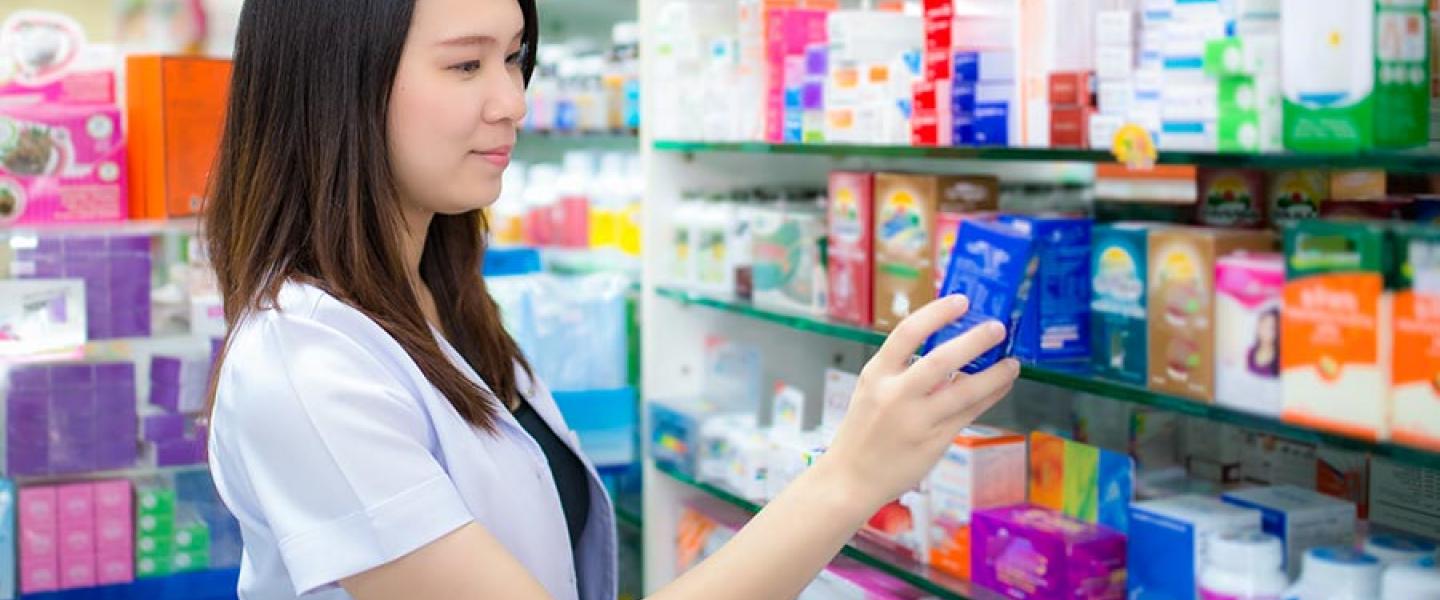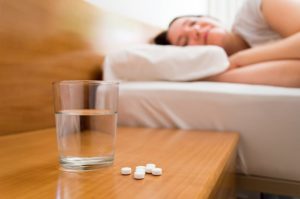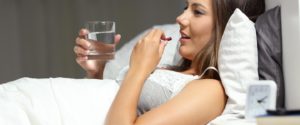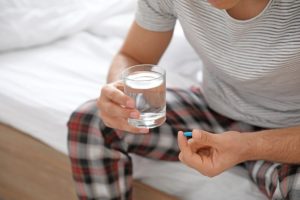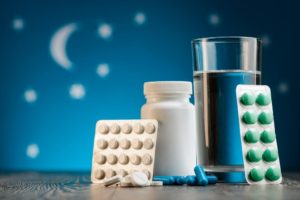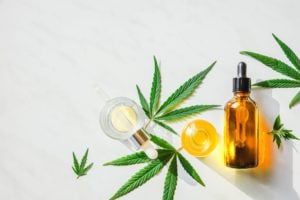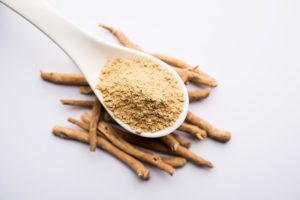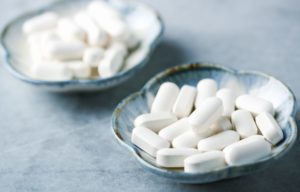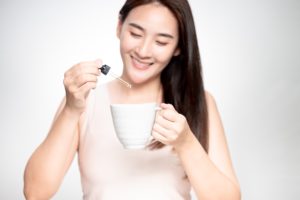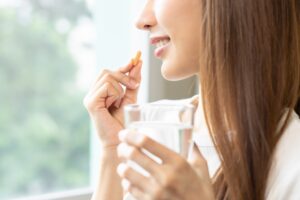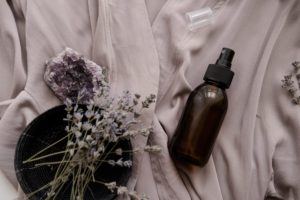When you buy through our links, we may earn a commission. Products or services may be offered by an affiliated entity. Learn more.
Finding Reputable Sleep Supplements
Although dietary supplements are widely used, taking them may pose certain health risks due to limited regulation from federal government agencies. Some supplements contain potentially harmful ingredients, or ingredients and concentrations that do not match what is printed on the label. Although it is up to consumers to find formulations they can trust, many Americans do not understand that supplements are not tested for safety or efficacy.
We explore which products are categorized as dietary supplements and share information to help people find and take dietary supplements as safely as possible.
According to the U.S. Food and Drug Administration (FDA), dietary supplements are products people consume to gain additional benefits beyond what they receive from eating food. Those who manufacture and market dietary supplements cannot claim that a product can prevent, treat, or cure a disease. However, in practice, most people consume dietary supplements with the intention of improving their health .
In the U.S., over 85,000 different types of dietary supplements are available for purchase. Dietary supplements take many forms, such as pills, powders, liquids, bars, and candies. Common ingredients in dietary supplements include:
- Vitamins, like vitamin C
- Minerals, like magnesium
- Herbs, like valerian root
- Natural compounds, like caffeine
- Amino acids, like tryptophan
- Live ingredients, like probiotics
About 58% of adults in the United States report having taken a dietary supplement in the past month. The most popularly consumed supplements include multivitamins, vitamin D, omega-3 fatty acid, and herbal remedies. Melatonin is also a dietary supplement often recommended to aid with sleep.
Does the FDA Regulate Dietary Supplements?
The U.S. Food and Drug Administration (FDA) has some oversight of the production of dietary supplements, but does not regulate supplements in the same way they do drugs. In order to gain FDA approval for a new drug , the manufacturers of the drug must present evidence that it is both safe and effective. The FDA can then determine if the benefits of using the drug outweigh any potential risks.
Unlike products categorized as drugs, supplement manufacturers are not required to demonstrate that their dietary supplements are safe or effective before they are allowed to sell them, and therefore they do not gain FDA approval. Instead, the FDA may regulate dietary supplements after they are already on the market.
The Dietary Supplement Health and Education Act of 1994
The Dietary Supplement Health and Education Act of 1994 (DSHEA) describes what constitutes a dietary supplement and details the role of the FDA in monitoring and regulating supplements. Under this legislation, the government cannot require manufacturers to provide evidence on the safety, efficacy, or quality of dietary supplements before products are put on the market.
The DSHEA allows the FDA to remove dietary supplements from the market if they are shown to be harmful. People who believe they have had a negative reaction to a supplement may report it to the FDA . The FDA investigates reported reactions to supplements, and can recall a product if they deem it unsafe. Recalled dietary supplements are made public online, in an FDA database that also includes recalled foods.
Current Good Manufacturing Practice
The DSHEA allows the FDA to oversee manufacturing of dietary supplements according to rules outlined in a regulation called Current Good Manufacturing Practice (CGMP). The CGMP was last updated in 2007 and details quality control requirements for creating, packaging, labeling, and storing drugs and dietary supplements.
The CGMP also requires dietary supplements to be free of contaminants. However, this regulation allows small businesses to operate according to less-restrictive quality criteria. For example, there are no outlined upper limits for known harmful metals, like lead.
Research also suggests not all dietary supplement manufacturers follow CGMP rules. From 2010 to 2013, the FDA conducted 626 inspections and 71% of inspected manufacturers failed to meet standards.
Are Dietary Supplements Safe?
Whether or not a dietary supplement can be considered safe depends on multiple factors, including how it is manufactured and characteristics of the person taking it. Since the FDA does not test dietary supplements before they are sold, available products may have inaccurate labels or potentially harmful ingredients.
In some studies of dietary supplements, researchers have found supplement products to be mislabeled. For example, a variety of supplement types have been found to contain much higher or lower concentrations of ingredients than the label states. In some instances, supplements also contain potentially harmful ingredients that are not listed on the label.
Even when a dietary supplement is properly formulated and labeled, it may be unsafe. Sometimes people assume dietary supplements labeled as “natural” are likely to be safe or have mild effects, but this is not necessarily true. Natural products can have a major effect on the body and, in some instances, cause harm. Dietary supplements may also interfere with medications a person takes, impact medical test results, and even negatively affect surgery.
Who Tests Dietary Supplements?
Since the FDA does not test dietary supplements before they are sold, some researchers and medical professionals urge people to purchase supplements that have undergone third-party testing. Multiple organizations test dietary supplements to ensure they are free of contaminants and the contents match the labels. Manufacturers can opt to have their products tested and, in return, receive a seal of approval to add to their website or product labels.
U.S. Pharmacopeia
The U.S. Pharmacopeia (USP) is a non-profit organization that first began in 1820. Before the U.S. government regulated medical products, the USP created the first set of American guidelines for substances that are now categorized as drugs and dietary supplements.
When a dietary supplement manufacturer meets USP standards, they can put the USP verification mark on their product labels and packaging. The USP claims products with a USP verification mark are:
- Accurately labeled for ingredients and potency
- Free of contaminants, like heavy metals and pesticides
- Capable of being absorbed by the body in a timely fashion
- Created according to Current Good Manufacturing Practices
People interested in finding USP-verified dietary supplements can use the quality supplements website created and maintained by the USP.
NSF
NSF began as the National Sanitation Foundation in 1944 and is a non-profit organization, like the USP. In its early years, the organization developed standards for sanitizing soda fountains and lunch restaurant equipment. Now, the organization helps with quality control in many industries, including food, health, water, automotive, and construction.
The NSF mark indicates a product meets their standards. NSF claims dietary supplements that contain the NSF mark are:
- Accurately labeled, so ingredients on the label are present in the supplement
- Tested to ensure the supplement is formulated as intended
- Free of contaminants and unlisted ingredients
People who want to find dietary supplements that have the NSF mark can search the NSF’s certified dietary supplement database.
ConsumerLab.com
ConsumerLab.com is a for-profit company, unlike the USP and NSF which are non-profit organizations. ConsumerLab.com also differs from the USP and NSF in that they test products in some instances even when manufacturers have not paid for it, though people must pay to see these results.
When a dietary supplement manufacturer has received a ConsumerLab.com certification, their products may be given the CL seal . ConsumerLab.com claims products displaying the CL seal :
- Contain ingredients listed on the label, in the amounts listed
- Are free of contaminants
- Can be properly broken down and absorbed by the body
Those interested in exploring dietary supplements information on ConsumerLab.com may browse by brand name, read product reviews, or view recalls and warnings. Although ConsumerLab.com offers some dietary supplement information for free, much of it requires a membership to view.
CVS
In 2019, U.S.-based pharmacy CVS announced they would begin testing all supplements they sell through a program called “Tested to Be Trusted.” Instead of conducting their own testing, CVS has third parties, like the USP and NSF, test most supplements they sell.
CVS states they have most supplements tested to ensure they:
- Are free from contaminants, like heavy metals and pesticides
- Have been manufactured in a facility that meets FDA standards
- Contain ingredients in amounts listed on the label
People can identify which CVS products have undergone testing by looking for a “Supplement Facts” label on the back of the product.
When to Talk to Your Doctor
The FDA recommends talking with your doctor, nurse, or pharmacist before beginning to take a dietary supplement. Even when a dietary supplement has been approved by third-party testing, it might not be safe or appropriate for all people.
Health care professionals can help you consider the potential benefits and risks of any given supplement you are interested in. They can also help you determine if a supplement has the potential to interfere with your other medications, or if a supplement might impact upcoming lab tests or surgeries.

Still have questions? Ask our community!
Join our Sleep Care Community — a trusted hub of sleep health professionals, product specialists, and people just like you. Whether you need expert sleep advice for your insomnia or you’re searching for the perfect mattress, we’ve got you covered. Get personalized guidance from the experts who know sleep best.
References
13 Sources
-
U.S. Food and Drug Administration. (2022, June 2). FDA 101: Dietary supplements. Retrieved June 28, 2022, from, Retrieved March 22, 2023, from
https://www.fda.gov/consumers/consumer-updates/fda-101-dietary-supplements -
Bailey R. L. (2020). Current regulatory guidelines and resources to support research of dietary supplements in the United States. Critical Reviews in Food Science and Nutrition, 60(2), 298–309.
https://pubmed.ncbi.nlm.nih.gov/30421981/ -
Mishra, S., Stierman, B., Gahche, J. J., & Potischman, N. (2021, February). Dietary supplement use among adults: United States, 2017–2018. Centers for Disease Control and Prevention., Retrieved March 22, 2023, from
https://www.cdc.gov/nchs/products/databriefs/db399.htm -
U.S. Food and Drug Administration. (2022, May 10). Is it really ‘FDA approved’?, Retrieved March 22, 2023, from
https://www.fda.gov/consumers/consumer-updates/it-really-fda-approved -
U.S. Food and Drug Administration. (2022, May 6). How to report a problem with dietary supplements., Retrieved March 22, 2023, from
https://www.fda.gov/food/dietary-supplements/how-report-problem-dietary-supplements -
U.S. Food and Drug Administration. (2017, December 27). Backgrounder on the final rule for current good manufacturing practices (CGMPs) for dietary supplements., Retrieved March 22, 2023, from
https://www.fda.gov/food/current-good-manufacturing-practices-cgmps-food-and-dietary-supplements/backgrounder-final-rule-current-good-manufacturing-practices-cgmps-dietary-supplements -
U.S. Pharmacopeia. (n.d.). USP verified mark. USP.org., Retrieved March 22, 2023, from
https://www.usp.org/verification-services/verified-mark -
NSF. (n.d.). Mission and history., Retrieved March 22, 2023, from
https://www.nsf.org/about-nsf/mission-history -
NSF. (n.d.). Testing, inspection and certification., Retrieved March 22, 2023, from
https://www.nsf.org/testing -
NSF. (n.d.). The NSF mark., Retrieved March 22, 2023, from
https://www.nsf.org/about-nsf/nsf-mark -
ConsumerLab.com. (n.d.). The CL seal., Retrieved March 22, 2023, from
https://www.consumerlab.com/seal/ -
ConsumerLab.com. (n.d.). About ConsumerLab.com., Retrieved March 22, 2023, from
https://www.consumerlab.com/about/#license -
CVS.com. (n.d.). Tested to be trusted., Retrieved March 22, 2023, from
https://www.cvs.com/content/tested-trusted




